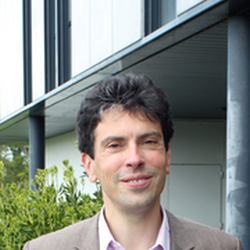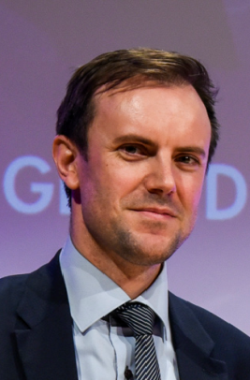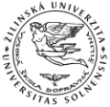Keynote
Reconfigurable Manufacturing Systems; Evaluation of Configuration KPI by Simulation and Simulation Model Generation
Abstract
One key issue of Industry 4.0 is to design manufacturing systems that fit changing context (new express demands or resources failures). Reconfigurable Manufacturing Systems (RMS) are of good interest as they offer the ability to change their organization. This adaption leads to go beyond the simple control and to go towards a control/command that includes monitoring, supervision and several control versions. This new enlarge vision, the amount of possibilities (degree of freedom) deeply increase their complexity. The challenge both remains in their design from material and logical parts point of view, and in their on-line piloting including decision to choose relevant configurations. Underlining how simulation can be of good interest for a large panel of problems, the talk addresses different simulation uses for RMS design and exploitation. It presents and discusses simulations results about 20 years industrial collaborations that investigate control/command validation, simulation models generation & consistency improvement, simulation based observer, and configuration elaboration.
Curriculum Vitae
Pascal Berruet is a Professor at Université Bretagne-Sud (University of South Brittany, France). Born in 1970, he obtained his engineering diploma in 1994 from Ecole Centrale de Lille (French "Grande Ecole"), and a Master’s degree in Automatic Control and Industrial Computer Sciences from Universite de Lille. He obtained his Ph.D. from Universite de Lille in 1998, and his Habilitation in 2007 from Universite Bretagne-Sud. From 2012 to 2016, he served as Vice President for Social and Economic Affairs at Universite Bretagne-Sud.
His researches are in the area of supervision and automatic control generation for discrete event reconfigurable systems in a Human System Cooperation team with special interest in modelling and simulation. Through these activities, he contributes in collaborative and innovative projects for Energy Efficiency, Smart Home Automation, Ambient assisted living, and Reconfigurable Manufacturing and industrial Systems in the Industry 4.0 context. He is also involved in transfer platforms and valorization projects.
In this context, he supervises 18 theses and publishes more than 100 papers in congresses and journals and received several grants for a total of over € 2.2 millions.

Universite de Bretagne Sud
Lab STICC
Lorient Cedex, France
Invited Speakers
SeCoIIA:Securing Collaborative Intelligent Industrial Assets
Abstract
SeCoIIA aims at securing digital transition of manufacturing industry towards more connected, collaborative, flexible and automated production techniques. It fosters user-driven application cases from aeronautics, automotive and naval construction sectors. Collaboration is considered from Organization to Organization (O2O), but also from Machine to Machine (M2M), Machine to Human (M2H) and Human to Human (H2H) perspectives. Enhanced process monitoring, optimization and control is achieved by intelligent use digital twin technology, Industrial IoT, Cloud Manufacturing (CMfg), collaborative robotics and Industrial AI. The collaborative approach triggers a virtuous cycle of growth and innovation, irrigating the full value chain, from very large to very small actors. Now reaching this step requires due diligence to security implications. The transition from hierarchized supply chains to collaborative networks of smart factories opens an attack surface so far never reached. Manufacturing operators are untrained to the manipulation of vulnerable cyber-physical assets. The deployment of smart sensors over distributed shop floors requires time sensitive communication security measures. Enhanced collaboration on manufacturing activities may not safely apply without collaborative security monitoring and incident response. Last but not least, the increased reliance on machine-learning based decision making sets a technical challenge in terms of security assurance and a legal challenge in terms of accountability and law enforcement. These are the challenges that SeCoIIA intends to address through the development of 12 key capabilities which will be assessed in various configurations through 3 ambitious demonstration campaigns lead by pilot users. A particular focus will be made on simulation-based testing, training and decision support will be made for the purpose of this conference. In particular, we will demonstrate how simulation of Operational Technology (OT) and modelling of human-machine interactions can be leveraged to enforce resilience of Factories of the Future.
Short Biography Adrien Bécue
Adrien Bécue (M) is Head of Innovation of Airbus Cybersecurity. He graduated from Toulous Business School in 2003 with a Master in Aerospace Management. In 2004, he joined the French defence procurement agency (DGA) as a Program Purchaser for Land Weapon systems. In this position he managed a portfolio of industrial and research projects driven by Network-Centric Warfare and Digital Battlefield transformations. He joined EADS group in 2008 to manage acquisition programs in Tactical Communication systems for the French Navy and the International Security Assistance Force (ISAF) deployed in Afghanistan. In 2010 he became Research & Technology Project Manager for border security and maritime surveillance projects. In 2013 he joined the Airbus DS Cybersecurity as Research & Technology Coordinator for France and launched several projects with a focus on attack detection security of industrial control systems. In 2016 he was promoted Head of R&T and Innovation, taking over responsibility of the whole R&T portfolio of Airbus DS Cybersecurity across UK, France and Germany. In 2017 he won Eureka Award of Innovation for ADAX ITEA Project dealing with advanced detection and simulation-based decision support. In 2018 he won ITEA Award of Innovation for FUSE-IT Project dealing with security and energy efficiency for smart buildings. He is working-group leader for Industry and Transportation vertical markets at ECSO (European Cyber-Security Organization) and a member of ENISA's (European Network & Information Security Agency) expert groups for security of Industry 4.0 and IoT. He is Project coordinator of SeCoIIA project, aiming to Secure Collaborative Intelligent Industrial Assets.
Short Biography Isabel Praça
Isabel Praça, Advisor of ISEP Presidency for R&D, Professor at ISEP and Senior Researcher at GECAD - Isabel has a PhD in Electrical and Computer Engineering, and a Post-Doc on the application of multi-agent systems and machine learning to Intelligent Energy services, awarded by the Portuguese National Science Foundation with a scholarship (SFRH / BPD / 30111 / 2006). She has participated in over 25 national and international R&D projects, with relevant responsibilities. She has published over 150 papers, more than 50 in international journals and books. She has been working in the application of AI techniques to real problems since 2001. She participates in the technical and scientific committees of several conferences and is an active member of IEEE. She works in the area of Artificial Intelligence (AI) with special interest in machine learning, multi-agent systems, knowledge-based systems, decision support, context aware methodologies, and modelling and simulation. Main areas of application are: cyber-security; intelligent services, like predictive maintenance, optimization, data lake exploitation, among other, in Industry 4.0; multi-agent systems and forecasting in power systems. She is the Impact Manager of SeCoIIA project, aiming to Secure Collaborative Intelligent Industrial Assets.

Head of Innovation
Airbus Cybersecurity
Elancourt, France

Professor at ISEP and Researcher at GECAD
Porto, Portugal




